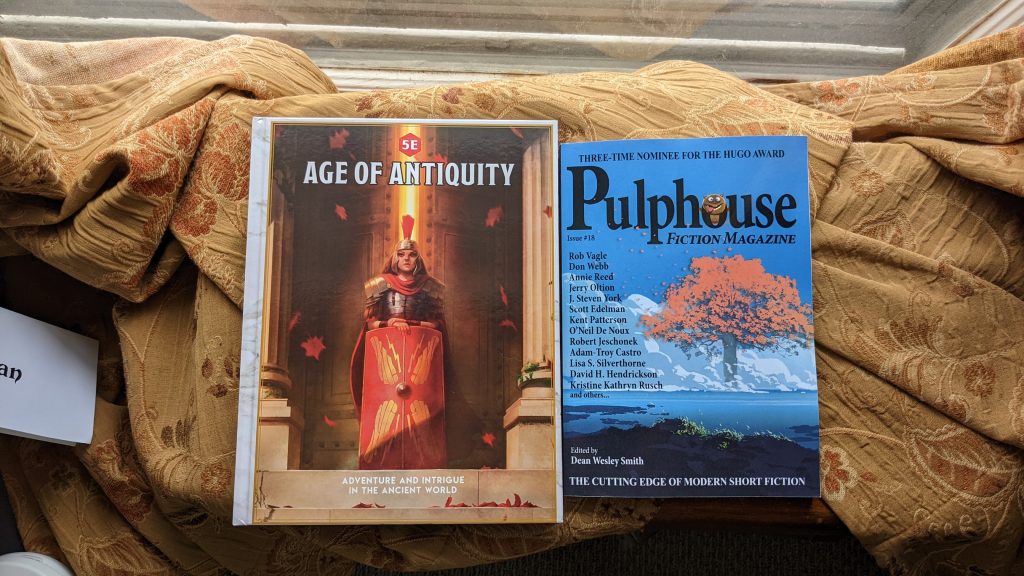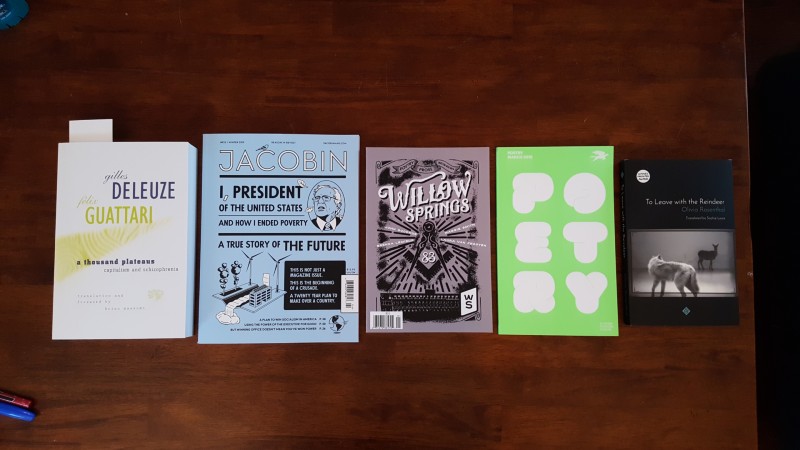
Now that I am walking to work again I notice how the length of daylight changes from day to day. This is measured by how long my shadow stretches on the ground ahead of me – and it is always ahead of me, as I walk west to work in the morning, and east back home in the afternoon. Here, almost two months after midsummer, the days are noticeably shorter every week and 17:00 no longer feels like the middle of the afternoon. In another month the nights will be longer than the days, which in theory means more time for sitting around and reading, but since I no longer spend all of my free daylight time on the trails and at the beach, I don’t expect much of anything will change.
First up is Age of Antiquity, a d20 RPG supplement from a Kickstarter I backed in June of 2020. The printing and fulfillment process immediately fell afoul of the COVID-19 lockdowns and supply chain disruption, but the team persevered and finally, almost 18 months after the original fulfillment date, I have the book in my hands, and it is beautiful. This is also something of a relic of the beginning of the lockdown in 2020, when I thought I would have time to indulge in playing some RPGs, or at least reading manuals and designing adventures. That, of course, turned out to NOT be the case, but I do have several beautiful d20 rulebooks which I otherwise would never have considered.
Next is issue 18 of Pulphouse Fiction Magazine, which was a pleasant surprise as I thought I had let my subscription lapse. Apparently there are still a couple more issues to go before I am done with this one.
In reading news, my Paris Review project continues apace. I am caught up to Winter 2019, and have about fifteen issues left, which should last me through November. Then on to something else. Maybe Lady Churchill’s Rosebud Wristlet.
I am also slowly working my way through Michael Marder’s Political Categories. I am taking this one slow, as I want to be able to discuss the concepts therein with my reading group when we eventually meet. This is not to say that I don’t retain what I read generally, but this one in particular I am treating as a class assignment for a teacher with high expectations.



